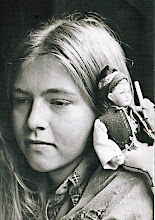Frank Chanfrau (1824-1884) was a popular 19th century actor. He managed New York City's Bowery Theatre and was famous for his role as Mose in New York As It Is, a play that broke all records for attendance and became the most popular play in the United States.
Here's a photo of Frank Chanfrau.
 |
| Source: Wikipedia |
A traveler who is lost in a backwoods area inquires for the route home from a squatter or farmer. The squatter is usually seated on his front porch playing the fiddle or picking a banjo. After each section of dialogue, the squatter plays the first part of the tune. (It has become so well known it is often used to introduce or identify rustic characters.)
SQUATTER: Hello, Stranger.
TRAVELER: Which one of those forks in the road do you take to town?
S: I don't know. I keep my forks up on the shelf. (Here SQUATTER plays the first part of the tune.)
It goes on from there with lots of misunderstandings, the humor being derived from the differences between the sophisticated eastern traveler and the backwards country dweller. While the State of Arkansas eventually protested and declared that untold damage had been done to their reputation by these stereotypes, the sympathies of the drama seem to lie firmly with the country folk. It is the city dweller who is being outwitted by the country dweller, who merely pretends to be dense in order to withhold information.
Bluestein compares the city dweller/country bumpkin conflict to the conflict between Europe and the New World:
In response to this identification, the American has consistently faced his European antagonists with a show of bravado. But he has as often relied on just the kind of dissembling "The Arkansas Traveler" depicts. In fact, if one enlarges the scope of the antagonism between the squatter and the traveler, he perceives the outline of the more basic conflict. The traveler is not only a city-dweller, but an easterner who, in his point of view toward the backwoodsman, shows himself to be a European. The squatter, on the other hand, is not merely a farmer or rustic; he takes on the characteristics of the aboriginal American as well... The strategy of humor "The Arkansas Traveler" employs is uniquely American because it is based on the theme of cultural conflict between the European and the American. The traveler-squatter antagonism masks a deeper tension between the European traveler, who is smug and condescending, and the American native, who cleverly reverses the roles.
I find this particularly interesting in view of the recent criticism of presidential candidate Mitt Romney for speaking French. It makes a lot more sense now.
The Major and the Judge, depicted in the card above, are characters in the play along with the card sharp, the old man with the flirtatious young wife, and the German Hausfrau. I still don't know what they mean by "The Beats", but at least I feel like understand the greater story.
Frank Chanfrau died in 1884 at the age of 61. At the time of his death, he was still actively performing as Kit, the Arkansas Traveler. The New York Times death announcement on October 3, 1884 reported that large audiences had viewed his performance on Monday and Tuesday, but after dinner on Wednesday he was stricken with apoplexy and died the next morning at 5 am.
For those of you who are curious, here's what the Arkansas Traveler music sounds like.
If you want to know more about The Arkansas Traveler, here are some good sources:
"The Arkansas Traveler" and the Strategy of American Humor Author(s): Gene Bluestein Reviewed work(s):Source: Western Folklore, Vol. 21, No. 3 (Jul., 1962), pp. 153-160 Published by: Western States Folklore Society.
"The Arkansas Traveller:" Southwest Humor on CanvasAuthor(s): Sarah Brown Reviewed work(s):Source: The Arkansas Historical Quarterly, Vol. 46, No. 4 (Winter, 1987), pp. 348-375Published by: Arkansas Historical Association.
The Success of Kit, the Arkansas TravelerAuthor(s): Robert L. Morris Reviewed work(s):Source: The Arkansas Historical Quarterly, Vol. 22, No. 4 (Winter, 1963), pp. 338-350 Published by: Arkansas Historical Association.



You certainly unleashed a lot of information finally! I too, keep my forks put away....ha ha that was a great response he gave! In the first photo Jim doesn't appear to be a very happy and content man does he!
ReplyDeleteVery interesting! I loved the music...
ReplyDeleteI love how you find out so much about the cards -- fascinating! Thanks for all your research for us to enjoy.
ReplyDeleteTwain was kind of tapping the same vein of backwoods humor... The "fork in the road" misunderstanding is a little like the "fork handles" routine by the British comedy team the Two Ronnies... Another good find.
ReplyDeletechristine, you're amazing:) very interesting take on the whole european vs american thing. i didn't realize until last year after reading the guardian on a reg. basis, just how 'backwaters' the brits think we are:)
ReplyDeleteAdalbert, you're absolutely right about Twain. Bluestein discusses Twain in the same article.
ReplyDeleteThe country bumpkin outsmarting city slickers is what made the Andy Griffith show so funny! There's book smarts and life smarts, and I always appreciate the latter!
ReplyDeleteNice bit of research! It's satisfying to start with an obscure clue and piece together a forgotten bit of history.
ReplyDeleteWhat a great history of a missing story. Humor has such a short shelf life, it's interesting to discover the roots. The tune is such a standard too. I never would have associated it with a comic music hall act.
ReplyDeletefascinating archetypes that are with us still.
ReplyDelete